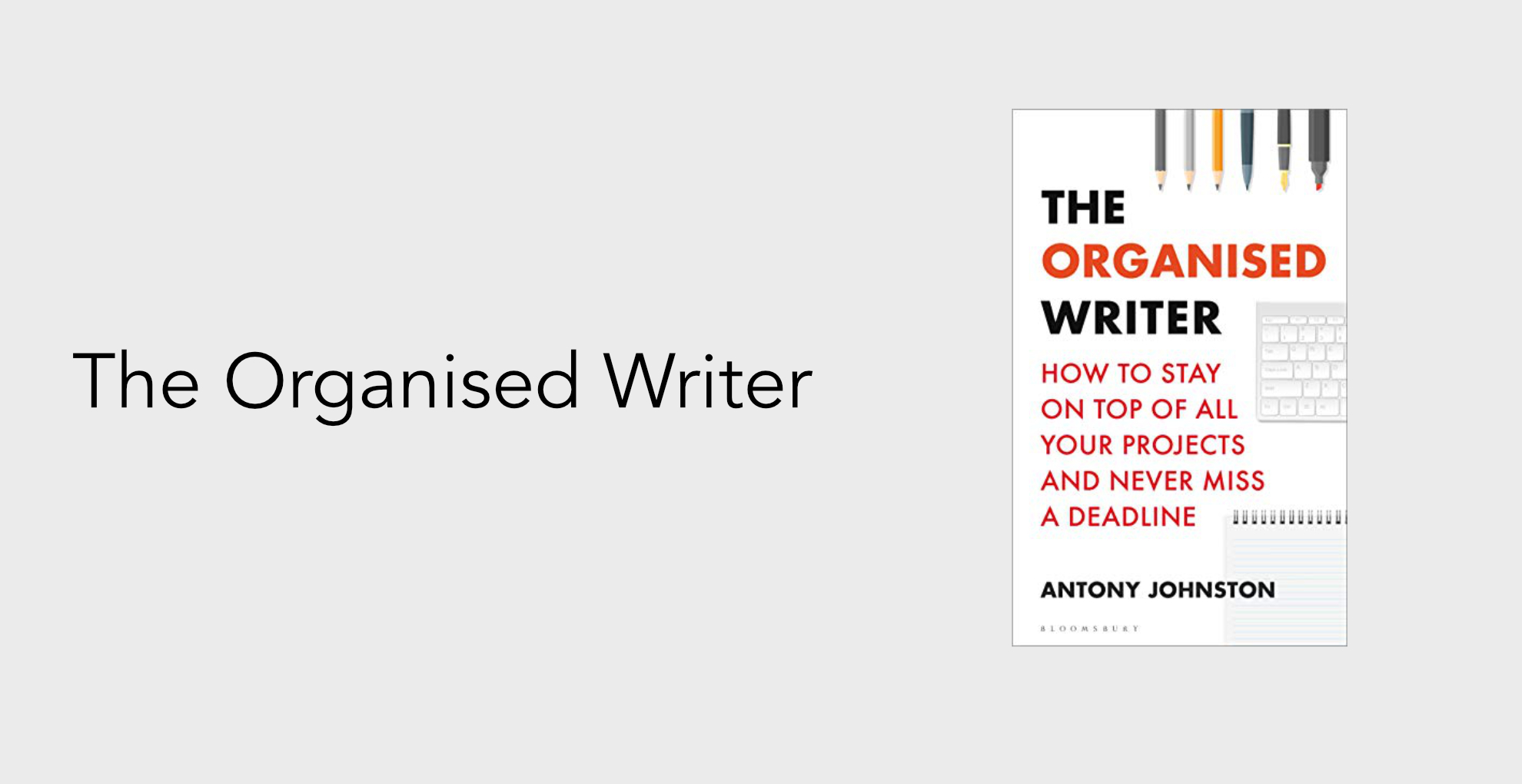Given that most of what I do starts with writing, I'd say firmly that I'm a writer now more than a programmer. I certainly devote more time to my writing than I do to my programming. When I saw The Organised Writer being recommended by a few people I follow, I grabbed it right away to see if there were any tips to improve my work.
The book is split up into three sections. Part 1 is about organizing your time and schedule so that you can make the most out of your writing sessions. Part 2 is about what to do when it's time to write. Part 3 is about running the business side of being a writer.
Get Organised
There is a bunch of general productivity advice in the first section of the book. Stuff like, yes it takes a while to build a task system but the benefits pay off long term. Yes, all writing projects go into your task system...and a bunch of stuff I won't cover. Three ideas stuck out to me though.
One of the things I've been wrestling with is the research that I use for client pieces. Sometimes a client will ask for a source when I quote something and occasionally I spend a bunch of time finding the same resource. I've dabbled with bookmarks and a few other methods, but Johnston pushed me to start filing everything. While he uses notebooks and file folders, I didn't go the physical route. For each client project I now create a folder in DEVONthink and add all research to it. This has also had the effect of me breaking up the research phase and writing phase into two distinct work sections. Now when I need a reference, I drop into the folder for the project and get it.
His second idea that I loved was to use time blocking1. He likes to plan a month in advance because his writing projects are big and they'll take many sessions to accomplish. A month of planning wouldn't work for many of my projects because they're single blog articles. Even the biggest of which take maybe a day to research and write. But, I love time blocking and do it weekly to help ensure I get the most out of my weeks.
I've got a course coming on time blocking. Subscribe to make sure you hear about it .
The third idea I liked was that you should work to a quantity of words not a time limit2. If you write you'll know that some days the words come out easy and some days they're lots of hard work. By working to a word count for the day you can schedule your projects. If you have 10,000 words to write and write 1000 words a day then you know that you will need 10 days to write. Then you'll need 10 days to edit. The project should take 20 days so schedule it and charge for the time needed to get the work done and still easy.
Get Writing
I had hoped that the section on writing would have some more tips dealing with non-fiction that I could apply to the structure of my projects, but it didn't. Still, there were two things that I liked.
First, if you hit your quota for the day, you're done3. I liked this because we work way too much and default to work4. Instead, work what you need to and then take a break. Take a walk, do some admin. Just get out and don't worry about slogging away all the time. Remember, by hitting your word count for the day you know you're on track to deliver on time.
The second excellent point is that waiting for "the muse" to come is absolving yourself from doing hard work5. One thing that Cal Newport has said repeatedly on his podcast is that regular people talk about the muse and writers block. For writers, there is so such thing as writers block. That's just the act of writing and professional writers write so go write and stop whining. The muse lets you procrastinate.
The Business
The final section of the book was the weakest in my opinion. I've run my own programming and writing business for over a decade though so I knew everything in here. Johnston say don't discount your work and be careful about taking too many small jobs6. Even if small jobs pay your regular rate, they incur focus switching and you don't get paid for focus switching. I do love that he acknowledges that if you're starting or if you have kids, get work and feed kids.
If your new to running a business, this section will be good. If you're coming from some other field where you've run a business...you know this stuff.
Should You Read The Organised Writer by Anthony Johnston?
If you're looking for a good productivity system to use as a base for a writing business, this is a good start. It does rely on physical folders way more than I ever would, but that doesn't make the underlying principles bad. In fact, Johnston's system is a good one.
If you're new to running a business, and your business will be writing, this is a good book. If you've run a business successfully for a while, then the first two sections are worth a read, but the last one is stuff you know.
Overall, it's a decent book if you're interested in building a writing business.
Now, since I've hit 1500 words today I guess I'm done work at 0712.
Purchase The Organised Writer: Independent Bookstore | Amazon
